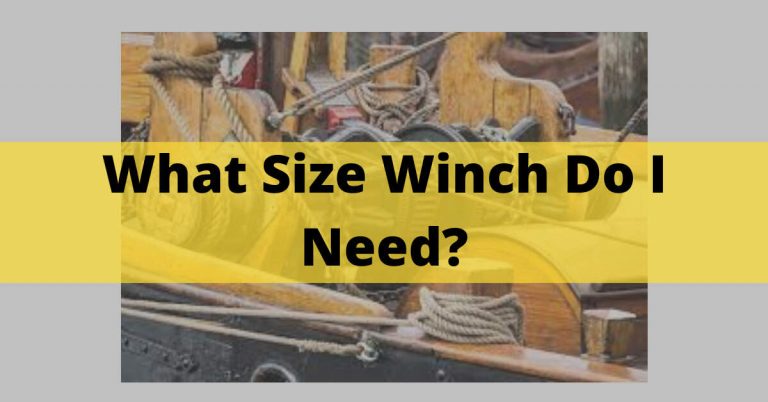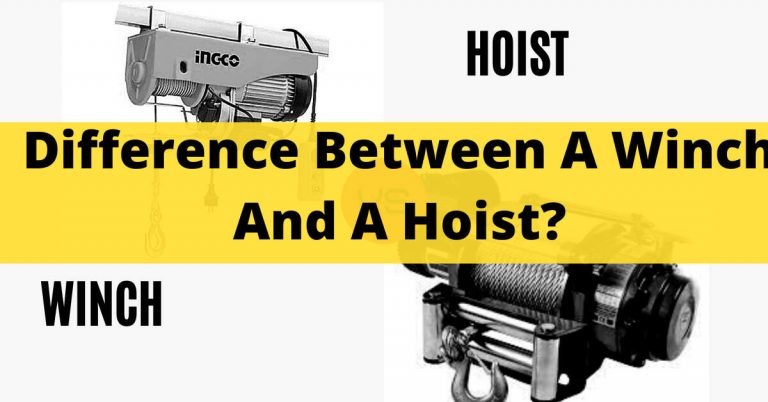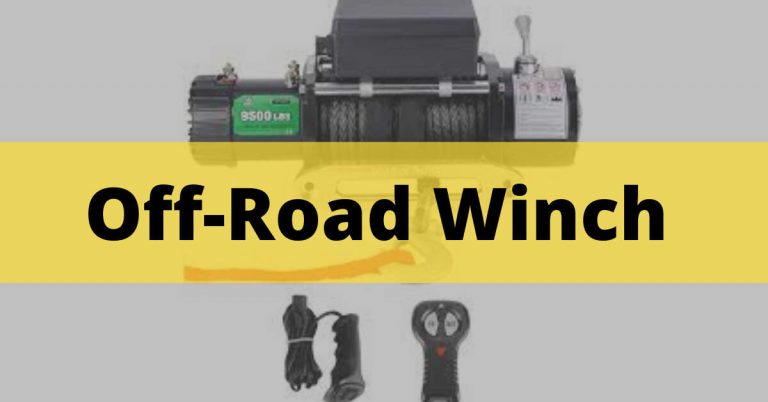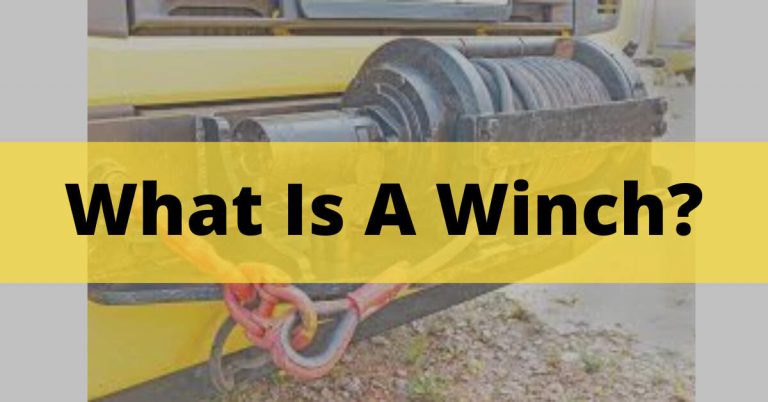Does A Winch Need An Isolator? How To Install & Uses In 2023
When you are out on the off-road, your Winch Will Break down. An isolator is essential to ensure that your winch will be there for you when you need it most. Therefore, it is a necessary add-on for any vehicle using a winch.
When not in use, completely cut off electricity to your winch. Prevent unauthorized use of the winch, which may be brought on by persons tampering with it via the control box port, wireless remote, or vehicle incidents.
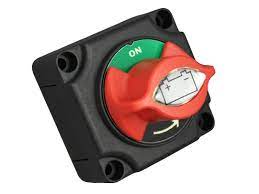
A fantastic safety feature that guards against solenoid or remote failure is also there. When not in use, completely cut off electricity to your winch.
Prevents tampering with your winch using a wireless remote or the control box port.
Quick and simple installation! Includes mounting hardware and a mounting bracket. These isolation switches are high quality and can handle 500A of continuous current.
Most isolation switches can only withstand short bursts of current before failing under heavy winch loads.
What Is An Isolator?
An isolator is a tool that aids in preventing electrical harm to your winch.
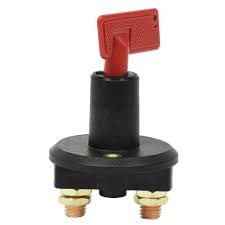
It effectively serves as a barrier between the electrical current and your winch, preventing any harmful spikes or surges from getting to your winch.
It can be a crucial piece of gear if you want to keep your winch in excellent working order, and it’s especially something to think about if you’re operating your winch in an area with a chance of electrical harm.
Do Winches Need Isolators?
A rope or cable can be wound or unwound using a winch, a sort of mechanical instrument. It is frequently utilized in various industries, including nautical, automotive, and construction.
The purpose of winch isolators is to separate the winch from its power source when not in use. This aids in preventing accidental starts and overloading of the winch’s electrical system.
The Benefits Of Using An Isolator
A tool that helps shield your winch from harm is called an isolator. It is a partition between the battery and the winch, where it is situated.
Doing this can lessen the chance of electrical shorts and other issues that might harm your winch. By shielding your winch from the outdoors, an isolator can also help to increase its lifespan.
How To Install An Isolator?
If your winch does not have an isolator, you can install one yourself. An isolator is a device that helps to protect your winch from electrical damage.
It is a good idea to install an isolator if you use your winch frequently or live in an area with high humidity.
There are some points on how to install an isolator:
- Disconnect the negative battery terminal from your vehicle. It will help prevent any electrical damage while working on the winch.
- Remove the fair lead from the winch. The fairlead is the winch part that holds the rope or cable.
- Unscrew the bolts that hold the winch onto the mount. You will need to remove the entire winch assembly to install the isolator.
- Install the isolator between the winch and the mount. Make sure the isolator is aligned before you screw it into place.
- Again, connect the negative battery terminal and test the winch to ensure it works correctly.
What Are Battery Isolators?
The best way to think of battery isolators is as the distribution hub of an automobile’s electrical system. Isolators, often made of diodes, ensure that power is divided equally among several batteries and the alternator.
The isolator’s job is to prevent the primary battery from being drained by other loads in the charging system while allowing the alternator to help charge it.

A battery isolator stops a fully charged main battery from transmitting current to a partially charged auxiliary battery by utilizing diodes to allow current to travel only in one direction.
Both batteries can receive current from the alternator, but the vehicle battery cannot deliver current to any loads inside the car. The contrary is also true: If you keep your car’s headlights on, your car’s primary battery won’t drain.
Uses Of Insulator:
Using an isolator, you can operate equipment in a trailer or RV without forgetting to unplug it from the vehicle’s main power supply.
The power of the vehicle powers every piece of equipment while the engine is running. The auxiliary battery powers the trailer’s equipment while the engine is shut off.
- A battery isolator has the benefit of requiring no power while not in use, but a battery separator uses some power even when not in use.
- A battery isolator, on the other hand, prevents an inverter/charger from charging the car battery.
- The ability for an inverter/charger to charge both batteries is made possible by a battery separator, which may be a crucial feature when a vehicle.
However, a battery isolator prevents an inverter/charger from charging the vehicle’s battery.
The ability for an inverter/charger to charge both batteries is made possible by a battery separator, which may be a crucial feature if a car is placed in storage for an extended period.
Frequently Asked Question:
1. Where Do You Place An Isolator?
Isolators are typically utilized on both ends of the breaker.
2. Can An Electrician Fit An Isolator Switch?
If the meter is one of the few that has a built-in isolator, it may not be necessary to install a second isolator switch; nonetheless, installing an isolator switch may involve pulling the main fuse in some circumstances.
3. When Would You Use An Isolator?
An electrical circuit is opened using isolator switches when no load is present. It is not advised to open it when the line is carrying current.
Typically, these are used on both ends of the circuit breaker, making it simple and risk-free to repair the circuit breaker.
Conclusion
It depends on many factors winch you have and how often you use it. However, most experts recommend using an isolator for your winch to prolong its lifespan and prevent damage to your electrical system.
If you’re unsure whether you need an isolator for your winch, consult with a professional before making a decision.
References

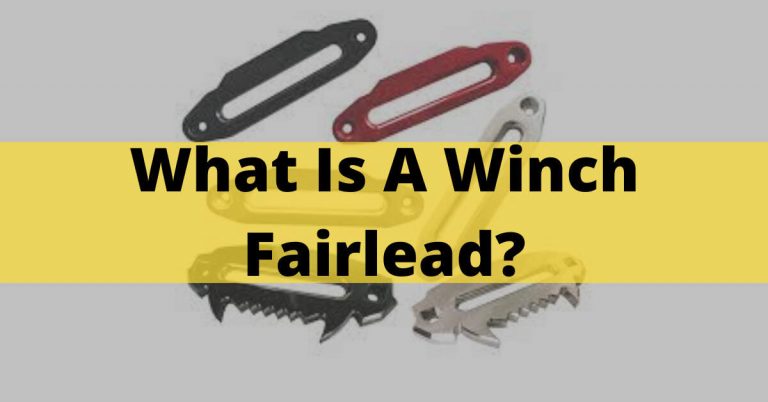
![PTO Winches Vs. Electric Winches: Which To Choose [2023]](https://garagegrabber.com/wp-content/uploads/2022/10/PTO-Winches-Vs.-Electric-Winches-768x402.jpeg)
